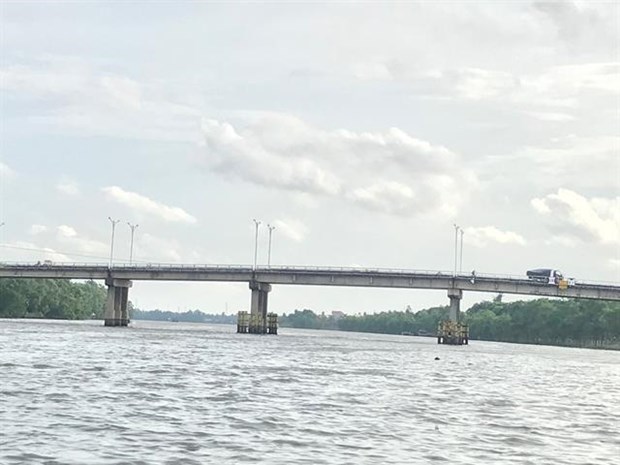
The HCM City-Trung Luong Expressway and Co Chien, Nam Can, My Loi, and Rach Soi bridges have been built, while highways 1, 91, 53, 54, 61 and others have been upgraded, contributing to regional development.
In An Giang province alone, 18 roads link the province’s administrative centre with roads in districts and neighbouring provinces. In addition, there are also now 4,260km of roads in the province’s rural areas. The province has 301 waterways and My Thoi and Binh Long ports which serve 10,000-tonne to 3,000-tonne boats.
However, Nguyen Viet Tri, Director of An Giang's Department of Transport, said that the province has not been able to have a "breakthrough" in economic development because the Soc Trang-Can Tho-Chau Doc expressway between the province and Phnom Penh in Cambodia still has not been built.
In addition, 30-tonne trucks cannot travel on a road that leads to Tinh Bien International Border Gate in the province because many roads, including Highway No. 91, that connect to this road are in poor condition.
Trucks of more than 20 tonnes cannot travel on Highway No. 91C and Street No. 957 because of dense traffic and must go to border gates Long Binh and Vinh Hoi Dong in the province.
According to research conducted by experts at the state-owned Transport Engineering Design Inc in the South, construction of the region's eastern expressways has been completed, but only 39.8 of planned 282km is open to traffic.
Roads along the N1 and N2 highways have also not been completed because capital has not been allocated for these sections.
Waterways
The region has 12 ports and 35 wharves. The ports operate as satellite ports for HCM City and Cai Mep-Thi Vai ports in Ba Ria-Vung Tau province.
Waterways, such as the Cho Gao Canal, which leads to Hau River, and others have been upgraded, but operation efficiency has not been high.
Le Do Muoi, Deputy Director of the Transport Development & Strategy Institute, said the key waterway from HCM City to Mekong Delta provinces has to go through Cho Gao Canal, but it is still not wide enough for the increasing number of boats. The logistics system there, however, is near completion.
Many enterprises have not taken advantage of the waterways to transport their goods.
Chu Van An, Deputy General Director of Minh Phu Seafood Corporation, said that it takes 30 hours to go to HCM City via waterway and that costs for transport are higher than road transport.
As a result, his company uses road transport to HCM City before exporting its goods to other countries, he added.
The connection between roads and waterways is limited, affecting transportation in the region, while connections in the entire region and with HCM City have not improved.
Under the Government's plan, six expressways with a total length of 365.6km will link HCM City and the Mekong Delta region. But only three of the expressways have received investment for the first phases.
HCM City has six- to- eight-lane Ring Roads 3 and 4 with a total length of nearly 287km that connect with the Mekong Delta region. However, only a few sections of the two roads have received investment.
Dr Duong Nhu Hung of HCM City University of Technology under Vietnam National University-HCM City said the entire southern region should have “a conductor” to regulate and manage co-operation in transport infrastructure and the economy.
More investment
Tri of An Giang province said the province is calling for investment in many transport projects. Most of the state capital so far has been allocated for roads from HCM City to Ca Mau province, he said.
According to the An Giang People’s Committee, the province does not have enough capital to contribute to transport infrastructure projects under public-private partnerships.
Muoi of the Transport Development & Strategy Institute suggested that the Government should allocate enough capital for transport infrastructure connecting HCM City to the region.
Nguyen Thien Nhan, Secretary of the HCM City Party Committee, said the investment from the Government’s budget did not correspond with the city and region’s economic development.
Total investment should be raised to nearly 35 percent in the next 10 years, including more funds from the state budget and private sector, Nhan said.
Revenue that HCM City contributes to the State budget should also be used for transport development in the region and the city.
“The city submits 80 percent of its revenues to the State budget each year. Twenty percent of this should be allocated for development in the next 10 years,” Nhan said.


















